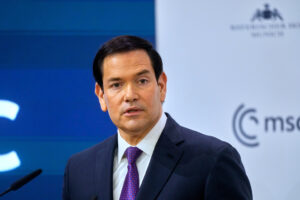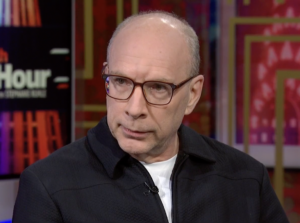The Pandora Papers: Why You Should Care
Dubbed the ‘Pandora Papers,’ this collection included documents, images, emails, and spreadsheets that totaled around 2.9 terabytes of data.

Photo credit: www.dailysabah.com
On Sunday, October 3rd, various media organizations worldwide reported on the leak of around 11.9 million files that revealed how some of the wealthiest individuals around the world––including world leaders, government officials, monarchs, celebrities, and business leaders––hid their assets through wealth concealment and tax avoidance strategies. Dubbed the ‘Pandora Papers,’ this collection included documents, images, emails, and spreadsheets that totaled around 2.9 terabytes of data. Although a meaningful initiative on the part of the journalism community, the average reader’s attention to the subject and its placement in the news-cycle came and went despite the papers illuminating an issue that affects us all.
The key takeaway of the papers is that many wealthy and well-known individuals avoided paying taxes on expensive purchases such as luxury properties by using shady practices, including offshore financial services to hide their money. In particular, the papers revealed that the Qatar ruling family avoided £18.5 million (US$21 million) in taxes after acquiring a super-mansion in London and how the King of Jordan secretly spent more than £70 million (US$100 million) on properties in Miami and London while simultaneously receiving substantial international aid from the US and UK. The specific source of the leak has still not been revealed but the documents purportedly came from 14 firms in the offshore financial services industry and were obtained by the International Consortium of Investigative Journalists (ICIJ) – an independent global network based in Washington DC consisting of over 100 media organizations spanning more than 100 countries. From there, the ICIJ shared the data with news organizations around the world to break the story. More than 600 journalists in 117 countries worked on the exposé, including The Washington Post, The BBC Panorama Team, and The Guardian.
The uncovering of these extensive documents pertaining to such highly-connected individuals may seem far removed from the average citizen. Many people might have the notion that there is not much that can be done about the information in the leak and that it will not affect them anyway. However, The Independent explains that “While such services are not illegal, they involve operating, in the opinion of the British government, ‘within the letter, but not the spirit, of the law’, at a time when $600bn is lost annually in tax revenue to world governments as a result of the industry’s artful practices, according to the International Monetary Fund.” Indeed, the wealthy individuals implicated in the Pandora Papers went to such great lengths to avoid the taxes that would otherwise contribute money towards programs meant to benefit average citizens like you and me.
However, the solution for such a systemic and global issue likely will not be conceived and implemented without a push from those outside the ultra-wealthy.
However, the solution for such a systemic and global issue likely will not be conceived and implemented without a push from those outside the ultra-wealthy. The New York Times recently reported that in the US, legislation called the Enablers Act has been drawn up by a bipartisan group of lawmakers that would for the first time “require trust companies, lawyers, art dealers, and others to investigate foreign clients seeking to move money and assets into the American financial system.” The bill’s co-sponsors, Reps. Tom Malinowski (D-N.J.), Steve Cohen (D-Tenn.), Joe Wilson (R-S.C.), and Maria Elvira Salazar (R-Fla.), called on the White House to support the legislation, but increasing pressure on more representatives would surely help the cause. Additionally, CNN reported that one of the subjects of the leaks, the Czech Republic’s right-wing populist prime minister Andrej Babiš, recently lost power after his party failed to win a majority in his country’s election that was held Saturday. It’s hard to tell if the Pandora Papers had a direct impact on the election results, but his premiership had routinely been plagued with accusations of financial impropriety, leading to one of the biggest protests in Czech Republic history which broke out in 2019 over Babiš’s financial affairs, amongst other issues.
It is not so much that this leak of information will automatically force any major power to act, but that it validates long-standing accusations of financial corruption that many have been voicing for years. It is well reported that discontent over wealth inequality in the US has ballooned in recent years, with a 2019 Pew Research Center survey finding that 61% of Americans believe there is too much economic inequality in the country. The Pandora Papers not only validate this claim but also uncovers one of the most prominent generators of this inequality with impressive detail.
Yet, more awareness is needed for actual policy changes to occur. The same 2019 Pew survey also revealed that 78% of Democrats and Democratic-leaning individuals say there is too much inequality in the US, while only 41% of Republicans and Republican-leaning individuals feel the same. Would the minds of the 59% change if they were aware of the details and lengths to which the wealthy go to conceal their wealth, and how much of that wealth could have been used towards taxes to fund programs that they would benefit from? The question may not be easily answered but one thing is clear: the Pandora Papers affect you more than you may think.
Roya Lotfi (she/her) formerly held the role of Editor-in-Chief at JPI Online Magazine. Her academic journey led her to a Master’s degree in International Relations from New York University, complementing her earlier BS in Biology from Montclair State University. Despite her scientific background, Roya’s unwavering passion for domestic and international politics guided her toward the vibrant world of IR. Prior to commencing her studies at NYU, she honed her skills in video production while working at Bright Trip Inc. and even contributed her talents to NBCUniversal. Looking ahead, her ultimate career aspiration is to create captivating video content focusing on current events and international relations within a media journalism organization. During her leisure hours, Roya enjoys indulging in reading and leisurely strolls around Central Park.




